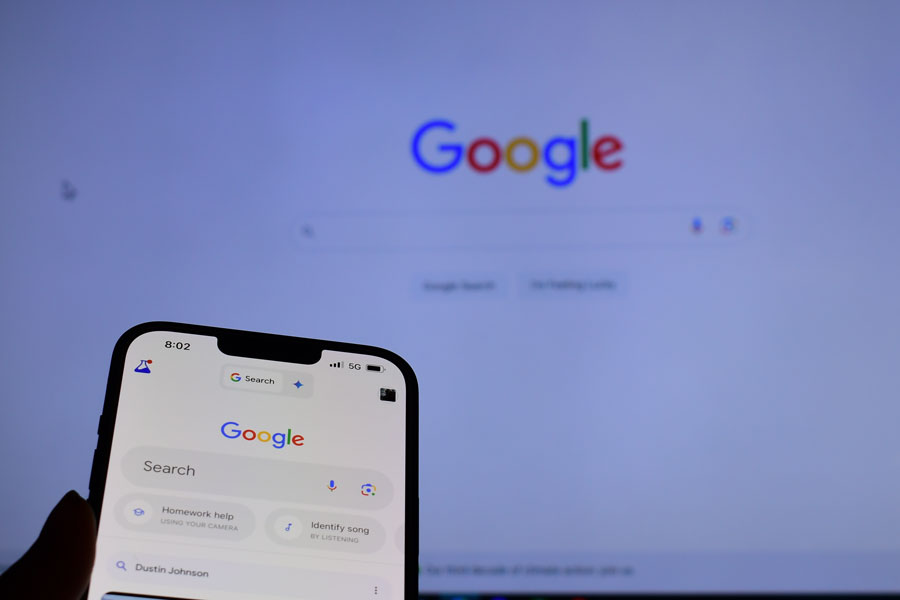Google Wins Antitrust Battle, Keeps Chrome and Android but Ordered to Share Data

WASHINGTON, D.C. – Google avoided the harshest penalties in a landmark antitrust case this week, as a federal judge declined to force the company to sell off major assets but imposed new requirements aimed at loosening its grip on online search.
U.S. District Judge Amit Mehta ruled that Google may keep its Chrome browser and Android mobile operating system, rejecting calls by the Justice Department for a breakup. Instead, the decision requires Google to end exclusive search engine contracts with companies like Apple and make parts of its search index available to qualified competitors.
The ruling immediately lifted investor confidence. Alphabet, Google’s parent company, saw its shares jump nearly 8 percent after the decision, reflecting relief that the company’s most profitable products remain untouched.
While the court reaffirmed that Google holds monopoly power in search and search advertising, it pointed to rapid advances in artificial intelligence tools, such as ChatGPT and Perplexity, as signs of growing competition. Regulators had argued those technologies made the need for structural remedies less urgent.
Critics countered that the remedies may prove weak, noting that requiring a dominant company to share data with rivals has historically been difficult to enforce. Privacy advocates also warned that broader access to search records could introduce new risks.
The case has drawn national attention as one of the most significant antitrust challenges to Big Tech in decades. Experts at Northeastern University and elsewhere described the outcome as a major win for Google, suggesting the measures imposed are unlikely to meaningfully alter its dominance in the short term.
Both the Justice Department and Google signaled they may appeal aspects of the ruling. Meanwhile, the company continues to face scrutiny in other cases, including investigations into its advertising business in the U.S. and Europe.
For now, Google avoids a corporate breakup, but its rivals are set to gain new access to the data that fuels its search empire — a shift that could reshape competition over time.
Q&A: Google’s Antitrust Ruling Explained
Q: What was this antitrust case about?
A: The Department of Justice accused Google of maintaining an illegal monopoly in search and search advertising, primarily through exclusive contracts that kept its search engine as the default on phones and browsers.
Q: What did the judge decide?
A: Google can keep its Chrome browser and Android operating system, but it must end exclusive default search contracts and share parts of its search index with approved competitors.
Q: Does this mean Google has to break up its business?
A: No. Regulators had pushed for a breakup, but the court rejected that remedy. Google’s core businesses remain intact.
Q: How did Wall Street react?
A: Alphabet’s stock jumped nearly 8 percent after the ruling, as investors viewed the outcome as favorable compared to the more drastic remedies that were on the table.
Q: Why did the judge see competition as increasing?
A: The court cited the rapid growth of artificial intelligence tools like ChatGPT and Perplexity, which are creating new ways for users to find information online and could erode Google’s dominance over time.
Q: Why are critics unhappy with the ruling?
A: Some argue that forcing Google to share data is hard to enforce and may not actually level the playing field. Others warn that wider access to search records could create privacy concerns.
Q: What happens next?
A: Both Google and the Justice Department have signaled they may appeal parts of the decision. Google also faces additional antitrust cases in the U.S. and Europe, particularly focused on its advertising business.
Key Points Snapshot
- Case Background: Google was found to hold an illegal monopoly in online search and advertising.
- Judge’s Ruling: Google can keep Chrome and Android but must end exclusive default search deals and share parts of its search index with rivals.
- Market Reaction: Alphabet stock surged nearly 8% after the decision, signaling investor relief.
- AI Competition: Court noted rising alternatives like ChatGPT and Perplexity as emerging threats to Google’s dominance.
- Criticism: Experts warn remedies may be weak, hard to enforce, and could pose privacy risks.
- What’s Next: Both Google and the Justice Department may appeal; other antitrust cases, especially around Google’s ad business, are still ongoing.


